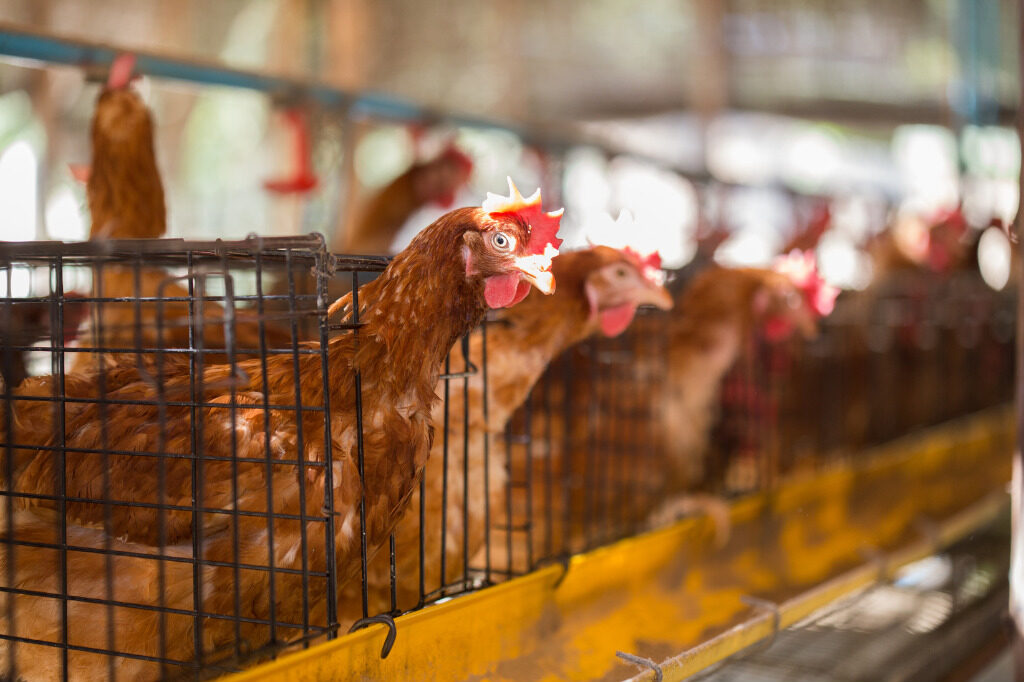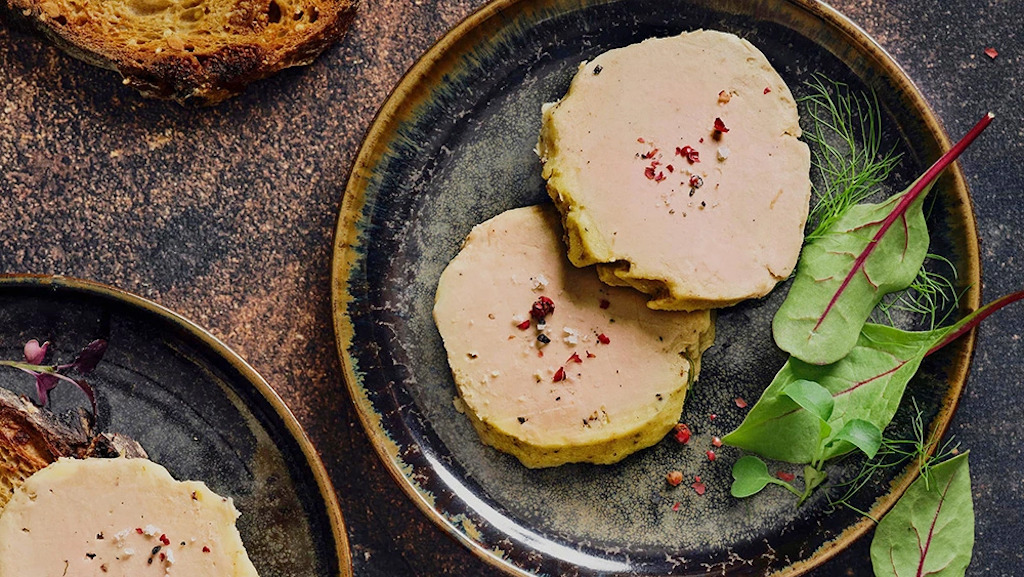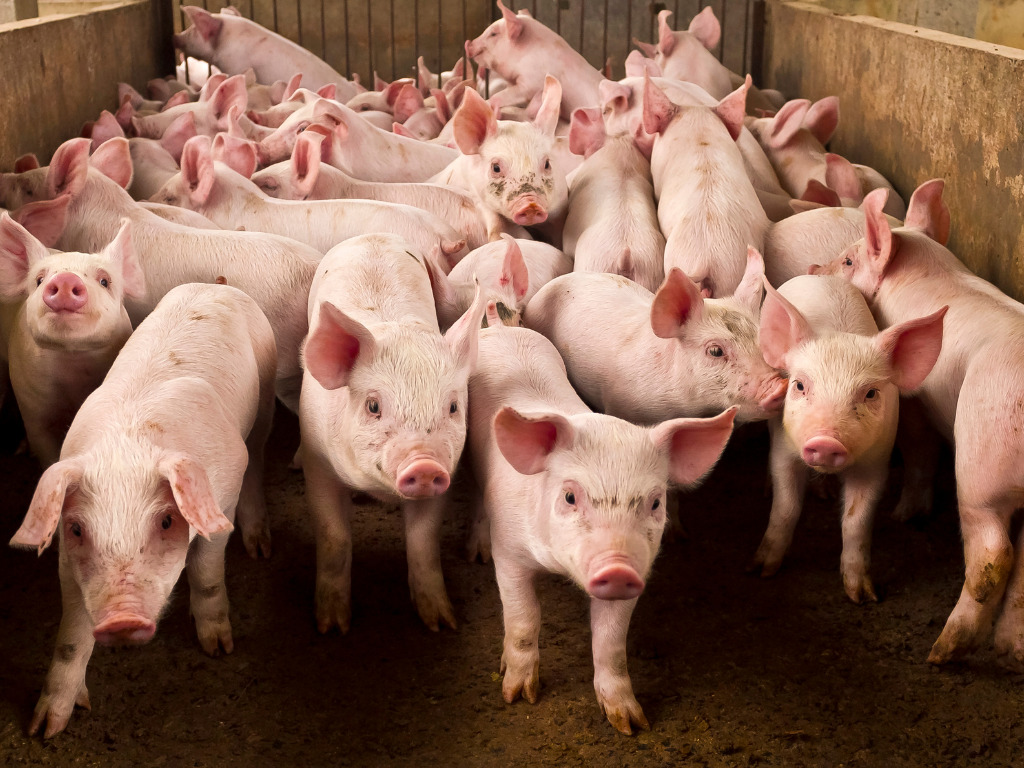4 Mins Read
Two weeks after proposing an unprecedented labelling ban on meat-related terms for plant-based alternatives, France is now promoting a pro-factory farming agenda by calling for the production of cheaper meat and ‘taking back the market from imports’. The country is the EU’s biggest beef supplier and says that animal welfare only works for the rich.
Soon after taking office in 2017, president Emmanuel Macron took aim at France’s powerful meat lobby, directing them to “stop production, whether of poultry or pork, which no longer corresponds to our tastes or needs”.
Six years later, it seems Macron’s words are seemingly falling on deaf ears. French agriculture minister Marc Fesneau – who co-signed the proposed alt-meat labelling ban alongside Prime Minister Elisabeth Borne and Finance Minister Bruno Le Maire – urged farmers to produce more and cheaper meat, as inflation dwindles the demand for organic meat.
“We have to admit that we must work on the entry-level [of the market],” he told an agricultural sector gathering. Macron wanted meat to be upscale and pushed organic meat – but Fesneau says animal welfare issues “only work if we find someone to pay” for higher-quality meat. Food has seen an 11% inflation in France, forcing many to seek cheaper meat.
“30% of French people now have the means to pay more for quality,” Pascale Hébel, a consumption analyst for data consultants C-Ways, told the Guardian. This is in contrast with the 50% of its citizens who could afford higher-quality meat in 2017.
Meat lobby hails agriculture minister’s comments, decries dependences on imports

It’s a big shift in the EU’s alt-protein sector. France is the bloc’s biggest beef supplier, as well as its second-largest milk manufacturer and third-largest pork producer. Its citizens ate nearly 85kg of meat per capita last year, double the global average.
France’s meat industry has been under intense pressure owing to the animal exploitation and environmental harm associated with it, especially in Brittany, the agriculture-rich area where Fesneau was speaking. The region’s beaches have seen a number of deaths linked to green algae from nitrates in fertilisers, as well as waste from its intensive pig, poultry and dairy farming activities.
However, the industry argues that the country’s domestic producers are losing out to imports and it must protect its interests. “Our goal is the reconquest of standard production,” said Gilles Huttepain, an executive at poultry giant LDC. “We must build 400 new standard [intensive] chicken houses a year to take back the market from imports,” he added, noting that half the chickens eaten in France are sourced internationally.
The country had come under pressure from animal welfare groups, supermarkets and politicians to eliminate factory-farmed eggs from its supply chain. In 2022, it introduced a ban on these eggs, stating that all whole eggs must come from cage-free hens, though notably, it did not extend to processed foods containing eggs.
France also banned the killing of day-old male chicks, and, alongside other countries, called on the EU to end the culling of male chicks, which would spare 300,000 million of these birds each year. (The EU itself announced a phase-out of caged farming by 2027.) But now, many poultry farmers regret the shift from industrial farming to cage-free eggs, according to poultry farmer Yves-Marie Beaudet, head of egg industry group CNPO.
A move in the opposite direction

Anne Richard, from pork group Inaporc, hailed Fesneau’s comments: “Maybe our resistance back then wasn’t all that ridiculous. People who invested in organic now find themselves stuck.” Huttepain added: “We cannot become like Switzerland, which went so upmarket that its agricultural sector is now just like a fairytale.” But Switzerland voted to reject a ban on factory farming just last year.
If Fesneau’s speech truly brings about a return to factory farming, France will be moving in the opposite direction of the EU, whose Farm to Fork strategy aims “to reduce the environmental impact of livestock farming” and move away from intensive agriculture. Further, the region’s Common Agricultural Policy calls for a stronger focus on environmental and climate objectives.
France’s move aligns with Sweden’s promise to boost animal protein in January but is in contrast to other EU countries that have promoted a reduction in meat consumption (a list that does include Switzerland). Denmark has been pushing for low-carbon foods and a drop in meat and dairy consumption, while Germany has been promoting plant-based diets in its nutrition strategy. The Netherlands, meanwhile, has approved cultivated meat and seafood industry tastings after investing €60M in cellular agriculture.
Within France, companies like La Vie, Dévore Food, Umiami and Gourmey are pushing the alt-meat envelope. Earlier this month, French multinational Carrefour announced an alliance to accelerate the development of plant-based food. A year ago, it opened France’s first vegan butcher in collaboration with Unilver-owned The Vegetarian Butcher.
Perhaps going against the stereotype, French dairy farmer Mathieu Courgeau said of Fesneau’s comments: “We are turning back the clock.” Eschewing quality to keep doing “what we have done since the 1960s, to produce cheaper and cheaper no matter what the hidden social and environmental costs… is completely counter to [the] issues we are facing”, he added.



